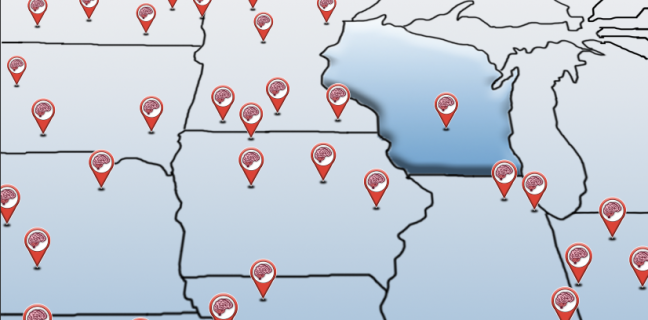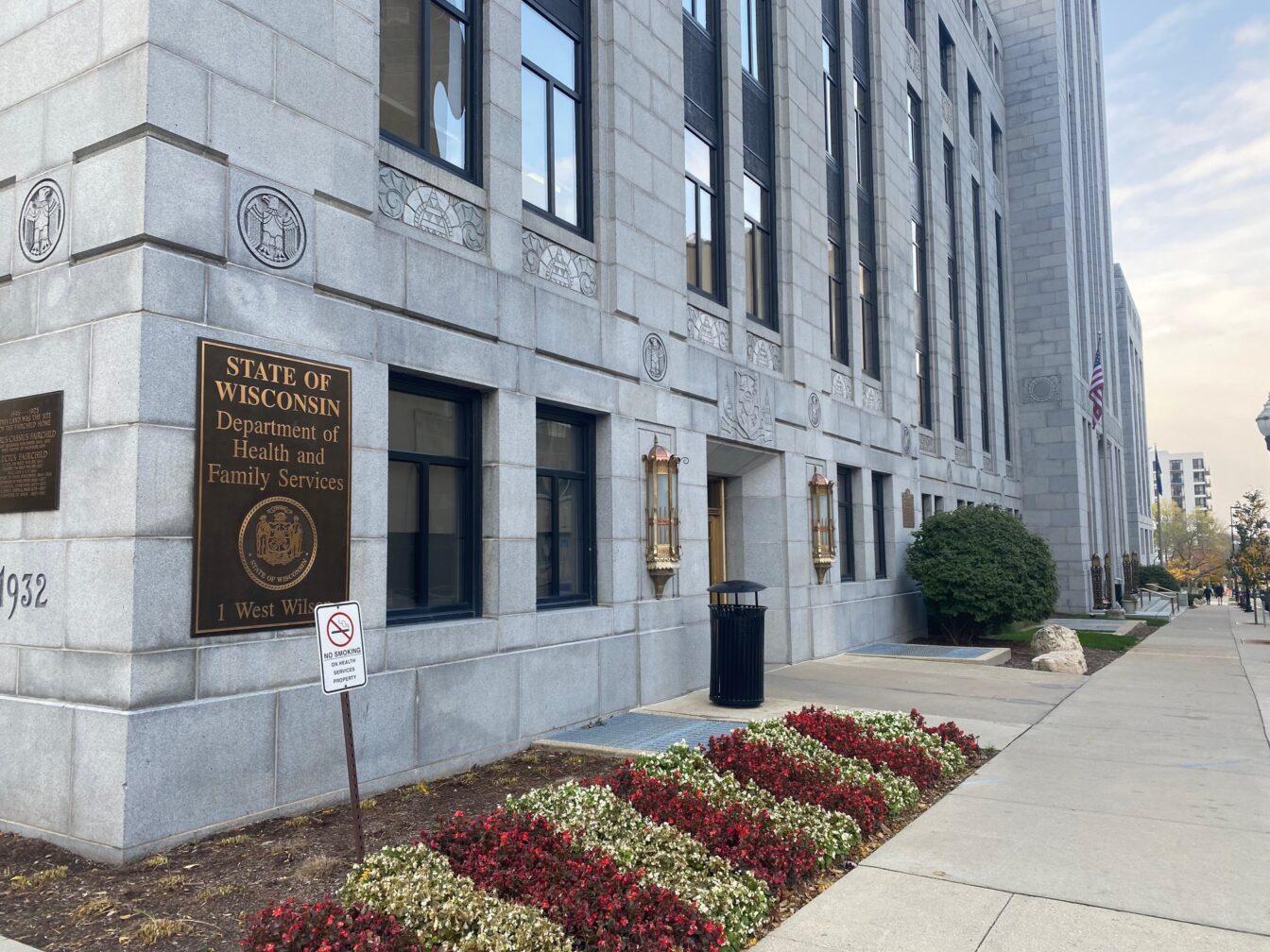Drivers attempting to maneuver through the flood of students parading around campus might find it difficult to believe Wisconsin faces serious issues in recruiting young people to come live and work here.
But for permanent Madison residents and veteran Wisconsinites, it’s a commonly held axiom that these young people are just passing through, on their way to some other final destination.
This widely accepted phenomenon has come to be known as a “brain drain,” whereby college-educated young people funnel out of Wisconsin after graduation as they seek long-term employment and permanent residence elsewhere.
But, in a recent study, three University of Wisconsin researchers found the term “brain drain” to be a misnomer. The researchers concluded that rather than skilled labor draining out of the state, a related, but markedly different, problem exists — the lack of a “brain gain.”
When highly skilled and educated workers are attracted to a particular state, that state is said to experience a “brain gain.” It would be unsurprising if Wisconsin — home to one of the largest and most elite universities in the world and to the sprawling urban environment of Milwaukee — boasted a considerable brain gain.
But this is a departure from reality. The state has consistently struggled to attract college-educated young people from universities across the country to move here for employment. The study found only six states — Pennsylvania, New York, New Jersey, Ohio, California and Michigan — to have a lower in-migration rate of college graduates than Wisconsin.
“These data suggest that it is not a large outflow of college educated people that is driving Wisconsin’s net loss of college graduates, but rather extremely low rates of in-migration,” the study said. “Accordingly, Wisconsin’s migration dynamic is characterized less by a ‘brain drain’ and more so by a lack of a ‘brain gain.’”
For UW students — especially those who don’t call Wisconsin home — this failure to attract other college graduates here and compensate for the people who leave may mean they don’t see the future of their own careers in Wisconsin.
Explaining how the Badger State got to this point begins with the Great Recession of 2008 and with the policies the state government pursued in its immediate aftermath.

A tale of two states
In 2008, the U.S. economy experienced a major recession, the likes of which had not been seen since the Great Depression of the 1930s. States across the country stumbled in its wake and policymakers pursued divergent paths to combat its far-reaching effects.
UW professor of applied and agricultural economics Steven Deller said some state governments chose to cut taxes and reduce government spending in the years following the recession, while others chose to do the opposite.
Wisconsin and Minnesota embodied these two divergent approaches to the recession, Deller said. Wisconsin decided to cut taxes and drastically reduce government spending across the board, while its neighbor to the northwest chose to raise taxes and increase spending. In part because of these policies, the two states experienced dramatically different rebounds following the recession.
“By law, state governments have to have a balanced budget. So when you’ve got a recession and your revenues fall off the table, you can do one of two things: cut spending or raise taxes and try to keep revenues up,” Deller said. “Wisconsin cut spending across the board while Minnesota raised taxes. Minnesota went through the Great Recession and rebounded much better than Wisconsin did.”
Deller said cutting taxes and reducing government spending — particularly on education and environmental regulations — is unattractive to people with college degrees.
“I think the fact that we’ve been able to retain 85 percent of the college graduates here kind of dispels that notion [of a brain drain]. However, we need to do a better job promoting ourselves and our opportunities outside of the state.”
Jordan Urbanek, a UW alumnus and Wisconsin native who left the state after graduation, echoed Deller’s claims. He said part of the reason he left was because of the policies the state government pursued under Gov. Scott Walker.
“I saw the university get gutted, lose funding and lose tenured professors,” Urbanek said. “And with the lax environmental policies that the state government is producing, I get really worried about whether the water will be safe the drink and the air will be safe to breathe. I wanted to go to a place where I’d feel more supported and where I’d see more growth.”
Deller said these Wisconsin policies have favored industries that operate under what economists refer to as “ordinary competition.”
Ordinary competition, Deller said, includes firms that hold little market power over the price of their goods. Instead of driving profits through innovation and technological improvements, these firms pay as little as possible in taxes and wages to make money.
“The way that they drive profitability is by driving down costs,” Deller said. “They look for lower taxes, they look for cheaper labor and they look for limited regulation. Wisconsin policy seems to be aimed at fostering those old legacy industries — like cheese production.”
As a result, firms operating under ordinary competition typically target “unskilled” — non-college educated — labor.
The counterpart to ordinary competition, Deller said, is “quality competition.” Broadly, firms in these markets derive profit by being innovative. Additionally, these firms seek “skilled labor” from people with college degrees and don’t pay less in wages to make a profit.
College-educated people need the motivation to migrate to other states for employment and residence, Deller said. Graduates go to places that value investments typically important to them — including public works, environmental regulations and higher education.
To attract graduates, these firms are more willing to be located in states like Minnesota, which tax more and enforce greater regulations for projects typically important to the college-educated demographic.
“These innovative firms are really more willing to tax themselves to invest in education and protect the environment and things like that, because of the kind of labor they want to attract,” Deller said. “That’s what those folks want.”
Ultimately, Wisconsin’s post-recession policies favored industries with limited demand for college-educated workers, and which instead seek low-wage, typically non-college educated labor.
As a result, Deller said college graduates throughout the country see limited benefits to moving to Wisconsin. The state doesn’t prioritize the issues and policies they care about, so industries typically composed of college graduates are hesitant to place themselves in the state.
But Tricia Braun, chief operating officer at the Wisconsin Economic Development Corporation, said there are jobs in Wisconsin attractive to college graduates. While the state struggles with bringing talent here, Braun said it has seen success in keeping native Wisconsinite graduates in the state.
Braun said the problem lies in the inaccurate belief Wisconsin doesn’t have good jobs for college graduates, because the data suggests opportunities abound here. Braun believes there is a lack of awareness among graduates that careers aligned with their skills and goals actually do exist here.
“I think the fact that we’ve been able to retain 85 percent of the college graduates here kind of dispels that notion [of a brain drain],” Braun said. “However, we need to do a better job promoting ourselves and our opportunities outside of the state.”
But whether the problem lies in cemented policy or in mere perception, Wisconsin faces undeniable problems drawing college graduates to live and work here.
As Braun mentioned, however, the state has seen success in retaining college graduates. In contradiction to the notion of a “brain drain,” Wisconsin has one of the “stickiest” populations in the country — that is, people born here tend to stay here.
Stick with what you know
This success was stressed in the data from Deller’s study, which found Wisconsin to have an exceptionally low rate of students leaving the state after college — a rate even lower than those states with a brain gain.
“Based on the most recent data available, Wisconsin has one of the lowest rates of out-migration among all states,” the study said. “In fact, Wisconsin’s out-migration rate is below that of many states showing a brain gain, such as Colorado, Oregon, Nevada, Virginia and Montana.”
This datapoint led the researchers to conclude the problem is not a brain drain, but rather an inability to foster an environment conducive to attracting college graduates — that lack of a “brain gain.”
“I have a few friends that are staying, so I’ll be able to continue those friendships and I also really like the size of Madison. I lived in Minneapolis for a summer and I prefer the medium-sized city of Madison. I also have family that lives in Madison too”
As a result, the study said efforts put into retaining UW graduates are misguided, because in-state UW students are very — indeed, increasingly — likely to stay in the state after graduation.
“A singular focus on the retention of college graduates is somewhat misplaced,” the study said. “Wisconsin is already a relatively ‘sticky state.’ Approximately 60 percent of college graduates currently living in Wisconsin were also born in the state of Wisconsin, which places it 8th highest among all states.”
This is a point which has been emphasized by UW officials who seek to dispel the notion of a “brain drain” composed of fleeing UW graduates — an effort that culminated in a university marketing campaign on the subject.
Jocelyn Milner, the director of academic planning and institutional research in the Office of the Vice Provost for Academic Affairs, said UW has actually seen increased success in retaining UW students after graduation.
In data Milner cited from UW’s Academic Planning and Research Institute, 66 percent of Wisconsin alumni called Wisconsin home in 2015-2016. That number is more than 20 percent higher than the same statistic from 20 years ago, and UW graduates’ in-state residency has risen every year since at least the early 1990s.
The UW School of Pharmacy has seen even more success in this regard. Alyson Kim, associate dean for marketing and communications at the UW School of Pharmacy, said the school has seen success in keeping its students in the state after they graduate.
“At the UW–Madison School of Pharmacy, we are the top producer of pharmacists in the state of Wisconsin, and the majority of our doctor of pharmacy degree students who seek employment choose to stay in Wisconsin after graduation,” Kim said.
Specifically, 74.5 percent of UW School of Pharmacy doctor of pharmacy graduates who accepted a position within three months of graduation in 2017 took a job in the state, Kim said.
Milner said the university at-large has created incentives for its students to stay in the state after graduation, including many programs that provide highly specific training for a career best fit in Wisconsin and tailored for the needs of its economy.
Additionally, Milner said UW saves a significant portion of its incoming freshman class each year for in-state students, an incentive which helps keep Wisconsinites in the state and contributes to the “sticky” population
“For undergraduates, the majority of spaces have been for Wisconsin residents and we have a commitment to educate a certain number of Wisconsin resident freshmen,” Milner said. “It’s a partnership with the people of the state of Wisconsin. It’s part of the public trust that the university has with the people of the state.”
UW senior Tyler Okonek echoed Milner’s sentiments and said he is excited to be staying in Madison after he graduates this May. He recently accepted a position with CUNA Mutual Group as an insurance actuary, and he said there are a lot of opportunities for insurance industry jobs in Madison.
“I have a few friends that are staying, so I’ll be able to continue those friendships and I also really like the size of Madison,” Okonek said. “I lived in Minneapolis for a summer and I prefer the medium-sized city of Madison. I also have family that lives in Madison too.”
But not all UW students feel the state offers them opportunities for success after graduation. Many, such as Urbanek, feel compelled to leave the state for post-graduation plans.
Urbanek, who studied Spanish at UW and medicine at the Wisconsin Academy of Rural Medicine, accepted a position as a resident physician in Seattle. He said he didn’t see a future for his career in the state’s economy because certain laws — primarily including those limiting women’s reproductive health rights and lax gun regulations — darkened the prospect of practicing medicine in rural Wisconsin.
But Milner said UW students leaving the state after graduation doesn’t have to be a bad thing for the university or for the state.
Milner said it’s part of the Wisconsin Idea to take one’s education out into to the global economy and pointed to UW’s past encouragement of students to study abroad during their time at the university as evidence of that.
“Ten or 15 years ago, the Board of Regents set a goal for 25 percent of undergraduates to study abroad,” Milner said. “Well, if you’re going to encourage students to study abroad, that suggests to me that there’s a value for students experiencing the world and seeing the world — and maybe taking their education and their Wisconsin values abroad.”
But the problem is ultimately bigger than UW and much of its solutions lie outside of the university’s purview. The problem lies in attracting graduates from elsewhere throughout the country to move here.
How to go about solving that problem has been the subject of statewide discussions for years and the trajectory and implications of the issue have yet to be seen. The year 2018, however, could bring major changes to how it is discussed and addressed.
Looking ahead
Wisconsin appears to have found itself in a paradoxical situation.
On one hand, the state is successful at retaining in-state college graduates to work here and contribute to its economy — a datapoint which suggests jobs exist in this state which are appealing to the college-educated demographic.
On the other hand, the state faces major issues in attracting others to come here, leaving it with both an economy and a population with a very low “churn” — change over time through businesses starting up and shutting down, and people moving in and out.
Braun said WEDC is developing innovative jobs in industries popular for college graduates, but states similar to Wisconsin — like Minnesota, Colorado and North Carolina — are experiencing much more of a gain from college graduates.
Policy-makers and experts on the subject might disagree on how to best solve the problem, but they agree the problem exists.
WEDC has taken an approach aimed at advertising all of Wisconsin’s benefits to a seemingly unaware general public, while UW researchers like Deller have said policies coming from the governor and the state Legislature have to be aimed at fostering more innovative and competitive industries.
Where the state goes from here has yet to be seen, and 2018 may be a key year in determining the trajectory of this issue.
Walker, the entire state Assembly and half of the state Senate are all up for election this year. And with Democratic hopes of a “blue wave” in 2018, there may be major policy changes in the coming years.
For now, though, those drivers attempting to commute through campus on a busy school day will probably still find it hard to believe many young, college-educated people don’t see their future in Wisconsin beyond their cap and gown.





















